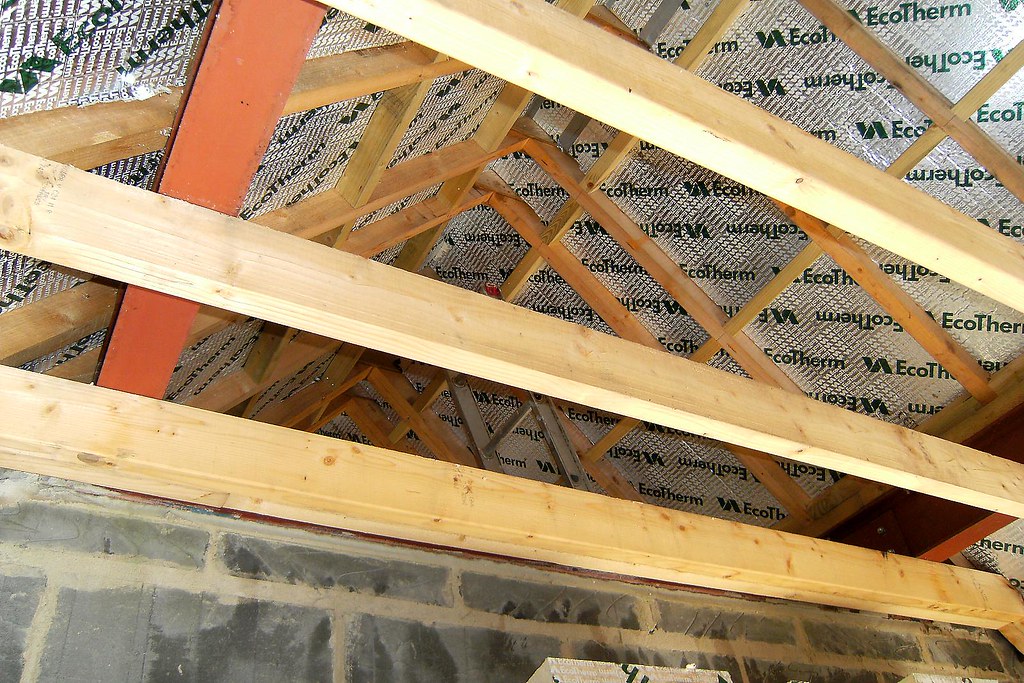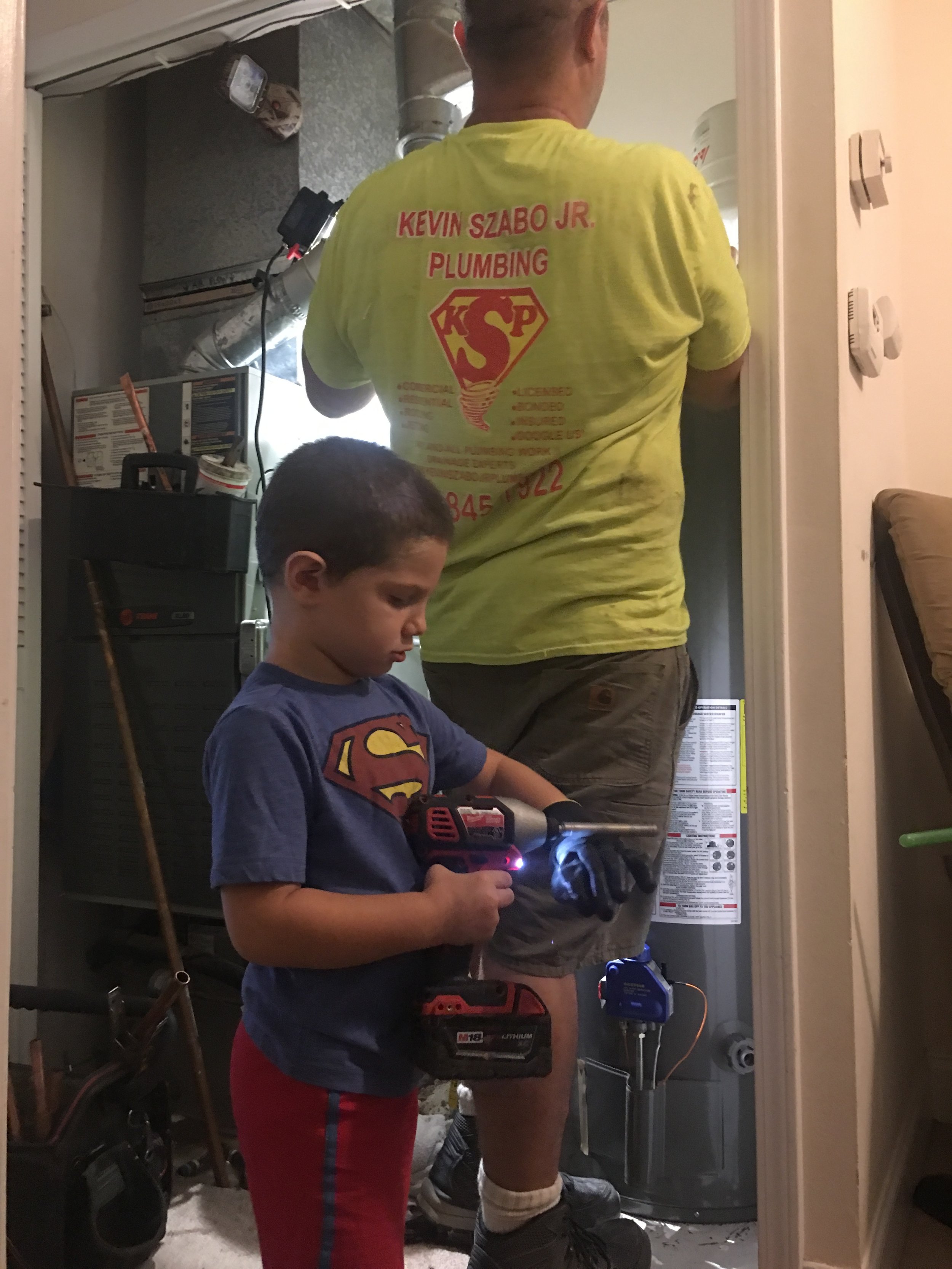If you’ve lived in the Pacific Northwest longer than a month, you know we get a lot of rain. Not, of course, as much as is painted by Hollywood in movies like “Sleepless in Seattle” or “The Killing”. However, the fall and winter months unleash a low, misty cloud-bank that keeps us all inside and snug in our black, gray, or dark blue jackets.
While the steady rainfall is also what we’ve got to thank for our lush, beautiful landscape, it also brings challenges as well — the most obvious being that all this damp weather makes it difficult to keep this moisture out of our homes and insulation.
So, what should you do when you notice that your insulation is wet? Well, that will depend on the type of insulation you’re dealing with. Now that we’re heading into our wet, fall weather yet again, it’s time to arm yourself with the knowledge gleaned from home insulation experts that can enable you to protect your home from the issues caused by damp insulation.

What To Do About Wet Spray Foam Insulation:
Aren’t you the lucky one! Closed-cell spray foam insulation repels water and provides a moisture barrier. This means the water won’t have penetrated the insulation itself and it should simply evaporate from the surface.
Clean up is fairly easy. Use an old towel to dry the spray foam to the best of your ability and place a fan nearby to dry out any water that you may have missed. Because spray foam insulation offers an airtight seal, the wooden structure behind should be dry as well, but just in case, you should take a peek yourself or have a professional come in to check it out. If water is getting between the wood and your spray foam insulation, it can begin causing wood rot, mold, and reduced insulation abilities.
What To Do About Wet Fiberglass Insulation:
Don’t fret — things could be worse! Fiberglass insulation is made from spun glass fibers. It won’t absorb water and, when a dousing does occur, the water won’t cause any major structural damage to the insulation.
However, water that has accumulated inside the fiberglass insulation will dramatically reduce the functionality of the insulation. Water conducts temperatures very easily, so when the warm air of your home presses against the insulation, the water will transfer that energy right outside. Additionally, the density of fiberglass insulation makes it difficult for the water to evaporate (usually only a problem when the insulation has been thoroughly wetted, in which case full replacement may be recommended). This means that moisture can lead to damage in the wood around the insulation.
So, your job is to help your insulation dry out. A dehumidifier and a few fans will often do the trick. Place them inside your attic or crawl space to help the area dry out. If possible, lift out the fiberglass bats that have been affected and place them in the sun or in a warm, dry area to let the water inside evaporate, then relay them. Please remember, if you do handle the insulation, do so only with gloves, long sleeves and pants, protective eyewear, and a breathing mask. Fiberglass fibers should not come into direct contact with your skin, eyes, or lungs.
Check up on your insulation over the next few weeks. If you start noticing a musty smell, it’s a sure sign that your insulation has been contaminated by the water. When this occurs, you’ll likely need to replace some or all of the insulation. This is most likely to happen after a flood, or if you’ve had pests in your home such as mice or rats.
What To Do About Wet Cellulose Insulation:
While cellulose insulation is for the win when it comes to being an eco-friendly or ‘green’ option, it’s not the best performer when it gets wet. Cellulose insulation is made from plant fibers, such as recycled newspapers. These fibers wick up moisture like a sponge. If your water damage is minimal, you may be able to simply have the affected area of cellulose insulation removed and (possibly) dried.
If your leak was significant, large areas of your insulation are likely affected. Unfortunately, cellulose is a great conductor of water and offers nutrients for mold and mildew. Usually, wet cellulose insulation will develop mold within a few days to a couple of weeks, which will require a total replacement of the insulation.
There is the possibility of removing and successfully drying cellulose batting, for those homeowners who have a large enough dry space for the batts to lay while they dry (this can take up to 10 days or more). If successful, the area in which they were laying can be thoroughly cleaned to prevent mold growth (and dried), and the bats can be laid down again.
What To Do About Wet Cotton Insulation:
As you might imagine, cotton insulation is prone to collecting moisture. Often made from recycled blue jeans or other plant fibers, cotton insulation will easily and rapidly absorb moisture. Thankfully, it is easier to dry out than other types of insulation, such as cellulose.
If you’ve only got a small area that’s been damaged, remove the insulation at least a foot further out than the visible wet area. Then, place the bat in the sun or in a warm dry place. Once dried, it can be replaced. Be sure to frequently check the area for any additional moisture or signs that mold growth is starting to develop.
Also, it’s important to know that if cotton insulation is subjected to repeated water exposure, it’s insular abilities often begin to decrease and the chemicals used to deter pests and slow the burn rate in the event of fire may have leached out.
If your cotton insulation has been saturated, such as in the event of a flood, all affected insulation will need to be replaced. It is possible that some insulation might be salvageable, but you would run the risk of introducing mold or moisture into your brand new insulation. Any cotton insulation that has mold growth should be scrapped.
What To Do About Wet Foam Board Insulation:
You’re in luck! Foam board insulation, like spray foam insulation, is water repellent and an unlikely host for mold or mildew growth. It is important to make sure you keep your foam board insulation dry, however, as well as the areas surrounding it. Because foam board is impermeable to water, it can create a seal that traps moisture in an area of the home, such as in a wall cavity. The wooden beams and drywall or sheetrock are not water resistant — they will be damaged and require replacement.
If you’ve noticed your foam board insulation has condensation or moisture on it, thoroughly dry the area with a towel. If there is any chance that moisture could have gotten behind the foam board, have a professional inspect the area to make sure you catch any water damage before it becomes a serious problem.
Home Insulation Options and Installation
Have a type of insulation that we didn’t mention here or are curious to learn more about getting new insulation installed in your home? We’d recommend contacting a reputable local business that specializes in insulation installation for attics, crawl spaces, and other areas of your home. They’ll be able to provide insight on the types of insulation best used for your home, the R-value of each option, and quotes for installation.
Featured images:
I'm the marketing manager for Clean Crawls, a Pacific Northwest crawl space cleaning & insulation company. At home, I love to spend time with my wife, 4 children, and golf. At work, I help connect my clients to their customers through content that helps people solve problems.








